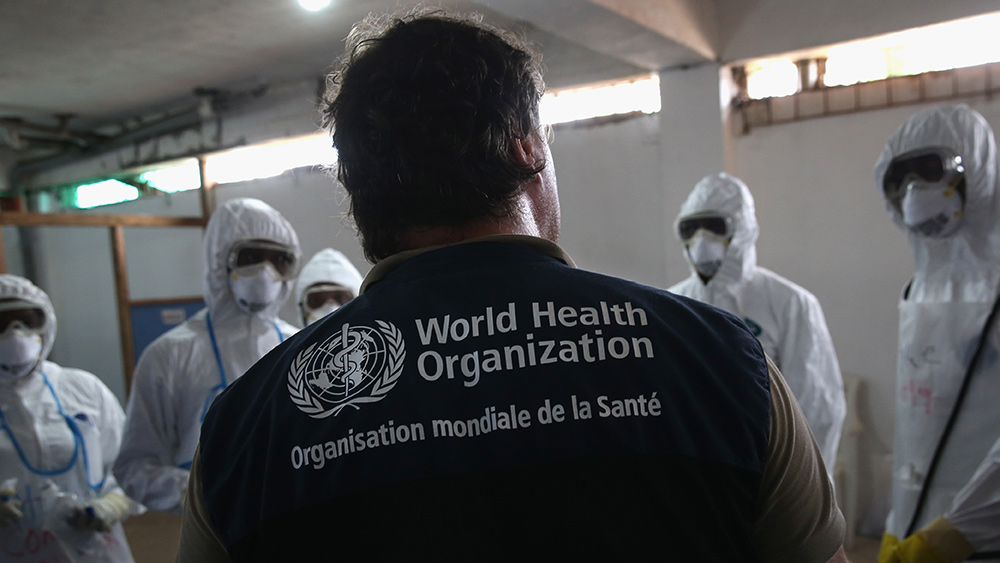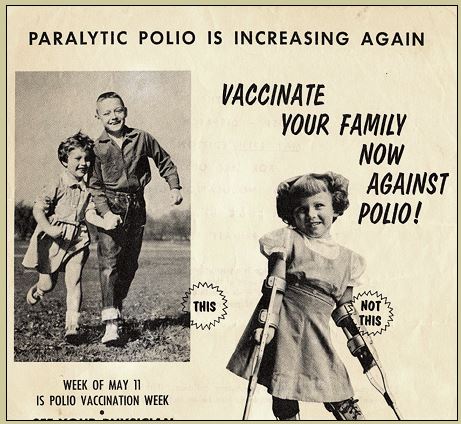CDC warns of alarming increase in syphilis cases in the U.S., especially among women and INFANTS
02/06/2024 / By Laura Harris

A recent report from the Centers for Disease Control and Prevention (CDC) reveals an alarming increase in syphilis cases across America, with a significant impact on women and infants.
Syphilis, caused by the bacterium Treponema pallidum, is a sexually transmitted infection (STI) that initially manifests as a painless ulcer. Untreated syphilis can lead to severe complications if it spreads to other parts of the body like the brain or nervous system.
According to the report, the number of syphilis cases reported in women witnessed a significant 19.5 percent increase in 2022. Out of the 59,016 cases reported nationwide, 14,652 cases were diagnosed in women, presenting roughly 25 percent of the total cases. This marks a significant uptick from 2018 when only 14 percent of syphilis cases were reported in women.
The report also reveals an alarming increase in congenital syphilis cases, affecting babies who contract the disease from their mothers while in the womb. Overall, syphilis cases have risen by 78.9 percent since 2018, while congenital syphilis cases have spiked to 183.4 percent. In other words, STIs are increasingly spreading among heterosexual couples. (Related: Study reveals 1,000% spike in congenital syphilis in Mississippi.)
But the CDC report also notes that men who have sex with men still constitute a disproportionately large share of syphilis cases. The final figures for 2022 reflect the highest number of diagnosed cases nationwide since the 1950s. Additionally, the CDC reports a continuous increase in syphilis rates since 2011, with disproportionately high numbers among Black and American Indian populations.
Dr. Jonathan Mermin, the director of the CDC National Center for HIV, Viral Hepatitis, STD and TB Prevention, highlighted in an email the need to improve diagnosis and treatment strategies to address substance abuse, like methamphetamine use, which contributes to the spread of the bacteria.
“Controlling syphilis and other sexually transmitted infections requires robust public health systems and workforces and prevention strategies that are tailored to the specific needs of affected communities. There are no shortcuts to syphilis control,” Mermaid wrote.
Several factors contribute to the increase in syphilis cases
Health officials were alarmed by the disturbing data on STIs from the CDC and its continuous increase. The National Coalition of STD Directors warned that the CDC’s data “shows that our nation is facing a rapidly deteriorating public health crisis with real lives at stake.”
“STIs, especially syphilis, will continue to spiral out of control until the administration and Congress provide communities with the funding they need,” continued the coalition.
In 2023, multiple health departments reported pregnant patients struggling to access the drug during the months-long shortage of Pfizer’s Bicillin L-A, the sole recommended treatment for pregnant individuals and their infants combating congenital syphilis infections.
The coalition was frustrated over the ongoing shortage and blamed the CDC, while the latter blamed a majority of recent congenital syphilis cases on gaps and delays in testing and treatment.
Moreover, hundreds of federally funded public health workers dedicated to curbing sexually transmitted infections are facing layoffs. The National Coalition of STD Directors, which warned of these layoffs last year, is now urging Health and Human Services Secretary Xavier Becerra to mitigate the cuts resulting from a deal struck with Congress in 2023.
Meanwhile, other health officials suggest that immigration could have a potential impact on disease transmission.
Last year, Letitia Bligh, a CDC health communications specialist, admitted that the CDC does not track diseases by immigration status. Physicians have doubted the scale of testing for diseases like syphilis among migrants. They even suggest that migrants may not be adequately screened for diseases like syphilis.
Furthermore, former President Donald Trump links the border crisis to the surge in diseases, stating that people are “coming in with disease; people are coming in with every possible thing that you can have.” Border sheriffs have echoed these sentiments, reporting encounters with migrants carrying various diseases, including tuberculosis, scabies, COVID-19, hepatitis A and B, gonorrhea, syphilis, mumps, chickenpox, dengue fever and more.
Visit Infections.news for more news about diseases and infections.
Watch the video below to find out how syphilis and leprosy ravaged the medieval world.
This video is from the Daily Videos channel on Brighteon.com.
More related stories:
Shortage of ANTIBIOTICS could worsen SYPHILIS epidemic in the U.S.
Eye syphilis outbreak: CDC warns disease has spread to more than 200 people across 20 states.
Sources include:
Submit a correction >>
Tagged Under:
big government, CDC, chaos, children's health, congenital syphilis, Dangerous, epidemic, health science, infant's health, infections, national security, outbreak, panic, Plague, pregnancy, STD, STI, women's health
This article may contain statements that reflect the opinion of the author
RECENT NEWS & ARTICLES
Infections.News is a fact-based public education website published by Infections News Features, LLC.
All content copyright © 2018 by Infections News Features, LLC.
Contact Us with Tips or Corrections
All trademarks, registered trademarks and servicemarks mentioned on this site are the property of their respective owners.




















